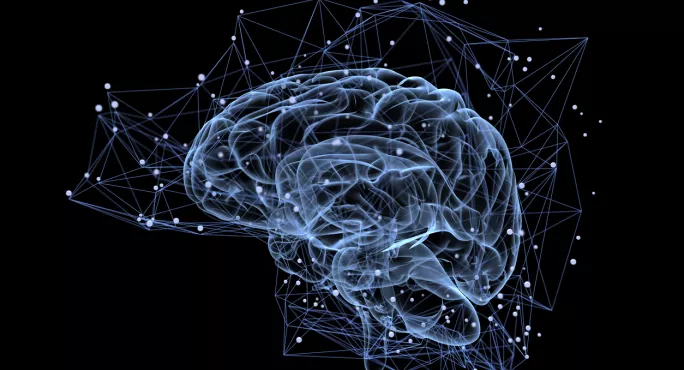
- Home
- Meta-learning: what is it and how it can help students succeed?
Meta-learning: what is it and how it can help students succeed?

Want to keep up with the latest education news and opinion? Follow TES USA on Twitter and like TES USA on Facebook.
As the founder of the Center for Curriculum Redesign, Charles Fadel researches what students should be taught to prepare them for the 21st century?
A visiting practioner at Harvard’s graduate school of education and a best-selling author, believes the curriculum has not developed in line with changes in society and technology.
Fadel wants what schools teach students to be redesigned to incorporate four key elements - knowledge, skills, character and meta-learning. Under meta-learning, students would practice “reflection, learn about their learning, internalize a growth mindset that encourages them to strive, and learn how to adapt their learning and behavior based on their goals”.
Here, Fadel explains why he believes meta-learning is should be an integral part of education.
How do you define meta-learning?
The Center for Curriculum Redesign defines meta-learning as two components, namely Metacognition - the process of thinking about thinking, and Growth Mindset - the inner belief that abilities can be developed through hard work.
Where have you seen meta-learning used successfully?
Meta-learning is part of every single discipline, not a layer on top or a separate “course”. Every discipline has a role in developing a growth mindset so children learn that they can “do it”.
Metacognition is rising in importance as educators are realizing its importance and developing learning experiences to complement their existing assignments. “Exam Wrappers,” developed by Marsha C. Lovett, ask students to reflect on the questions they got right and wrong, what was effective in their studying and what wasn’t, and prompts them to use this reflection to improve their habits for the next exam.
In theory, there is no reason that these should be limited to exams, but can be used to help students reflect on homework, projects, collaborative work, etc. by highlighting the meaningful questions and scaffolding self-reflection.
These exercises can be interwoven with the regular classroom activities as needed. For example, there is evidence that writing about one’s worries before a stressful exam boosts performance on the exam.
At what part of the education journey should we assess meta-learning?
Assessments are a huge question onto itself, but here’s an example: All types of portfolios (showcase, process, and evaluation) can be used to enhance and assess metacognition.
They are a very authentic method of assessment, and allow the opportunity for teachers to model metacognitive thinking (e.g. “I think this essay is a great example of how you carefully organized your ideas.”) and to prompt students to reflect on their learning (e.g. “what was effective/not effective about the learning strategy I chose to use?”).
What role does meta-learning play in providing the competencies needed for the jobs of today and the future - and in living a happier and healthier life?
These issues are facets of the same problem - a holistic ability to deal with whatever life has in store.
From a jobs standpoint, it is the latitude to improve one’s learning on the job by learning how to learn continuously, with a “can-do” attitude, to constantly stay ahead of “jobsolescence”.
But it is also how to deal effectively with crises, by examining one’s behavior as well as the content of the behavior. The vaunted “Emotional Quotient” rests not only on executive functions at the reaction level, but also on the deeper questioning and resolving of why the behavior exists in the first place.
For instance, in a meeting, you’d be both participating as well as observing/ modulating how you participate.
From a happy / healthy perspective, the same thinking about thinking applies: a growth mindset as “can-do”, as well as an ability to monitor one’s own behavior.
How well is meta-learning incorporated into current curriculum?
Meta-learning involves the learner reflecting on all three of the key learning processes in the CCR framework as they perform these learning tasks - gaining knowledge and understandings, building skills, and developing character qualities.
Meta-learning is very sparsely incorporated into existing curricula, and in no way deliberately, systematically and demonstrably across curricula.
What do you see as the most effective ways or places to integrate meta-learning into the key areas of curriculum? What do we need to do to make this happen?
Meta-learning activities involve reflecting on:
- What one already knows, what levels of skills one has, and what character qualities one has developed: prior knowledge, skills and character qualities.
- What one needs to know, what levels of skills one needs, and what character qualities are required for the learning task at hand: required knowledge, skills and character qualities.
- Which learning strategies are best for the task: learning strategy choices.
- How the learning processes are going: ongoing formative evaluations.
- What learning achievements and outcomes have been reached from the learning experience: summative evaluations.
- How knowledge, skills and character learning processes could be improved: learning improvement strategies.
The original version of this article first appeared in The Global Search for Education series on CMRubinWorld. Follow on Twitter @CMRubinWorld
Register with Tes and you can read five free articles every month, plus you'll have access to our range of award-winning newsletters.
Keep reading for just £4.90 per month
You've reached your limit of free articles this month. Subscribe for £4.90 per month for three months and get:
- Unlimited access to all Tes magazine content
- Exclusive subscriber-only stories
- Award-winning email newsletters
You've reached your limit of free articles this month. Subscribe for £4.90 per month for three months and get:
- Unlimited access to all Tes magazine content
- Exclusive subscriber-only stories
- Award-winning email newsletters



